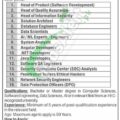Pakistan is gearing up for yet another increase in petroleum product prices, a development that could further exacerbate the ongoing economic challenges faced by the nation.
The impending price hike is primarily attributed to IMF proposal to impose 18% general sales tax (GST) on petroleum products and increase Petroleum Development Levy (PDL) from previous Rs. 60 to the new Rs. 70 per litre. Previously, in our blogs, we have informed you that government will impose GST and PDL on fuel prices.
Expected Surge
According to reliable sources, if this happens, the prices of petrol, diesel, kerosene oil, and light diesel oil are expected to rise by up to Rs. 6 per liter from November 16, 2024, cascading an increasing effect on living costs of already burdened consumers.
Petrol and high-speed diesel (HSD) prices are anticipated to increase by Rs. 2.58 and Rs. 5.91 per liter, respectively. Meanwhile, kerosine oil may show a surge of Rs. 5.54 per litre.
Current Petrol Price
As of October 31, 2024, petrol in Pakistan costs Rs 248.38 per liter, and high-speed diesel (HSD) is priced at Rs 255.14 per liter. These prices reflect a recent increase aimed at aligning with global oil market trends and the government’s fiscal goals. Currently, petroleum products are currently exempt from GST, a Petroleum Development Levy (PDL) of Rs 60 per liter applies.
OGRA’s Role and Govt’s Decision
Oil companies have already submitted their revised price calculations to the Oil and Gas Regulatory Authority (OGRA). OGRA will forward these calculations to the government on November 15, 2024, for final approval. The ultimate decision regarding the extent of the price increase rests with the Prime Minister’s office.
A significant portion of the price of petrol and diesel in Pakistan is comprised of taxes, including a fixed tax of Rs. 76 per liter. Any additional increase in the base price will directly impact consumers’ budgets, particularly those who rely heavily on these fuels for transportation and other essential needs.
Global Trends
Global oil prices have shown mixed trends in recent times. While Brent crude futures dipped slightly, US West Texas Intermediate (WTI) recorded a marginal increase. However, the overall trend indicates a moderate upward trajectory, which could further contribute to domestic price hikes.
As the government grapples with the delicate balance between stabilizing the economy and addressing the needs of the people, the upcoming petrol price hike is a cause for concern. It remains to be seen how the government will mitigate the impact of this increase and provide relief to the struggling population.






